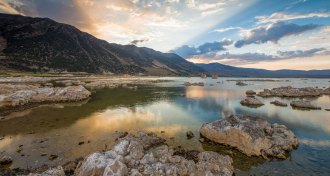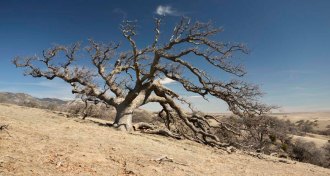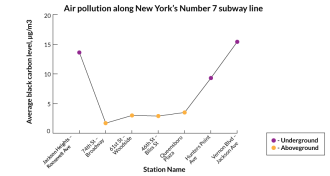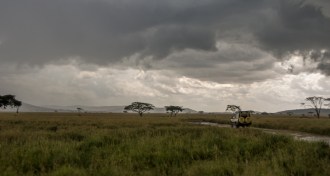Earth
Sign up for our newsletter
We summarize the week's scientific breakthroughs every Thursday.
-
 Health & Medicine
Health & MedicineYear in review: Risks of e-cigarettes emerge
Electronic cigarettes dispense water vapor laced with flavors and often a hefty dose of nicotine. These vapors may be far from benign, studies in 2014 suggested.
By Janet Raloff -
 Earth
EarthYear in review: Life thrives under Antarctica
Thousands of microbe species thrive in Lake Whillans deep beneath the West Antarctic ice sheet.
-
 Climate
ClimateYear in review: Climate warnings heat up
Climate change is here and the world is unprepared, scientists and policy makers declared multiple times in 2014.
By Beth Mole -
 Environment
EnvironmentYear in review: Microbes exploit their killer
Triclosan, an unregulated antimicrobial chemical found in consumer products, may aid, rather than deter, microbes that invade people’s bodies.
By Beth Mole -
 Earth
EarthMega volcanism indicted in dinosaur demise
Precision dating strengthens idea that climate-altering Deccan volcanism contributed to dinosaur extinction.
-
 Earth
EarthMineralogy’s link to ecology makes an Earth twin unlikely
Earth’s unique blend of minerals emerged with the evolution of life, making it extremely unlikely that another planet has Earth’s exact mineral composition.
-
 Climate
ClimateCalifornia drought worst in at least 1,200 years
The current California drought is the most severe in 1,200 years, according to historical information gleaned from tree rings.
-
 Climate
ClimateResilience protects corals from hurricanes — and climate change
Coral reefs have evolved to be resilient in the face of hurricanes that can devastate human populations. But climate change is reducing the ability of reefs to bounce back from disaster.
-
 Environment
EnvironmentBlack carbon fouls New York subway stations
Black carbon, a respiratory irritant, fouls air in New York subway stations.
By Meghan Rosen -
 Climate
ClimateGreenhouse gases may spell wet future for Africa
Greenhouse gases played a role in boosting rainfall in Africa 14,000 to 21,000 years ago, a finding that may help predict future abundance of water on the continent.
By Beth Mole -

-
 Planetary Science
Planetary SciencePreparing for disaster, celebrating success
Science cannot prevent all disasters or solve all the problems they spawn, but it can point to the best ways to prepare, making disasters less damaging than they might otherwise be
By Eva Emerson